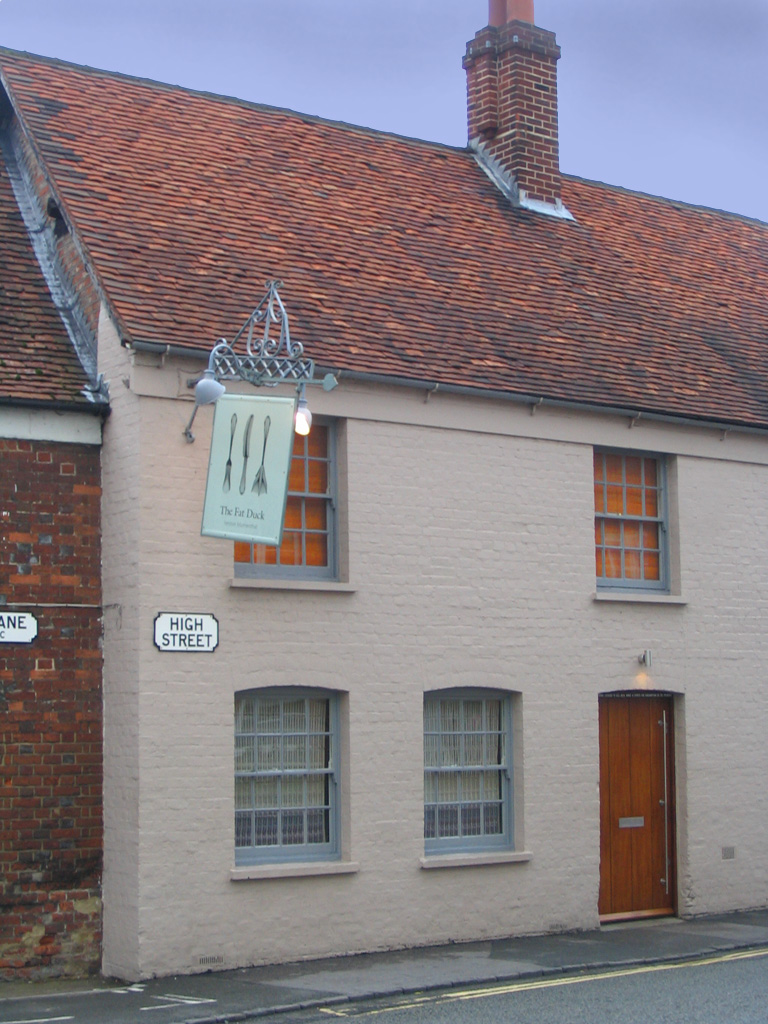20 years of Blumenthal: Ashley Palmer-Watts on what made The Fat Duck 'more than just a restaurant'
8 years after launching The Dinner – and almost 20 working alongside Heston Blumenthal – Ashley Palmer-Watts witnessed The Fat Duck’s evolution from a 5-man team to having three Michelin stars and being known as one of the best in the world.
The executive head chef at Dinner in London and Melbourne, the restaurant exploring the historical and cultural legacy of British food which has given the world a plethora of iconic dishes of its own, spoke to Paul Newbegin in the latest episode of The Pass Podcast.
- Ashley Palmer-Watts, Dinner by Heston London and Melbourne
- Heston Blumenthal’s losses doubled over the past year – is The Fat Duck safe?
- 10 Mins with: Heston Blumenthal
When he first visited The Fat Duck, aged 19, the chef said he instantly decided that it was the only restaurant he wanted to work at.
"There was something about what Heston was doing there that was quite extraordinary."

Source: wikimedia commons
He remembers the day Heston offered him a position of sous-chef at the Bray restaurant, in 2001: "Whilst everyone else was going for a mid-service break and never coming back, going to the bank in the afternoon and never coming back, we just stuck our heads down and cracked on."
"We often do talk about that moment and we often follow up with 'we never thought it would come to this.’”
Though it took him a while to realise this, the chef agrees that what they created at The Fat Duck is “more than just a restaurant.”
"I remember Heston saying a few years ago, before we re-opened, 'you know, it's not a restaurant.' And I thought - I don't really understand that, because the tricky thing is, to a lot of people it's a restaurant, but once you come and you experience what happens there, you go away thinking actually that's not just a restaurant at all."
But what is the secret to making snail porridge and bacon and egg ice cream an acceptable thing to serve in a restaurant, and how do you turn something as understated as triple-cooked chips into a restaurant staple?
A scientific, yet playful approach to dish development is the foundation of Blumenthal empire, explained the chef, coupled with the team’s ability to shut the world to improve every aspect of the experience.
"We were completely focused on what was going on. Almost didn't have a clue what was going on outside."
The chef said the team had “a myriad” of scientists they could call upon, from physicists, researchers in psychology and scientists specialising in touch and smell.
'snail porridge'
The triple-cooked chips – now as classic as pommes anna and dauphinoise potatoes in restaurants’ repertoires – were the result of Heston’s meticulous approach to development.
"Heston was working on this before I even got to The Fat Duck and I remember around 2001, we had a girl in the kitchen at the time and she had to try 32 different types of treating a single chip."
"Some of them were scraped with a fork before cooking, after cooking, they were pricked with a cocktail stick, it was salt in the water, no salt in the water - there were 32 variations. I'm not joking, it was one of the craziest tests I've ever seen but you know what, that's what he wanted to do and that sums Heston up really."
"Rationale in things, sometimes is a deterrent and a block to actually come up with something that is quite incredible."
But like pioneers in all fields, the team at The Fat Duck were the brunt of many jokes when they spearheaded new methods and techniques.
They were one of the first kitchens in the country to use a sous-vide machine, the chef explained, and they were only vindicated by the course of time.
“This was not happening. That was not part of any kitchen."
"I remember quite a few distasteful comments about how we cooked and how we approached things but you know what - sitting here today and seeing what's in modern kitchens now - it's as common as an oven."
Rigorously going through the stages of dish development is something the chef carried with him to Dinner - ostensibly the reason for its two Michelin stars - where the team document every stage of a dish’s creation, accepting that nothing is perfect from day 1.
The chef even made the most of the restaurant being closed for six months following a fire to give his team more time to study, research and practice development.
After almost two decades, the chef’s appetite to improve and progress hasn’t subsided, giving him little chance to think about how far the restaurant group has come.
“One day, I'll probably look back and reflect on it and enjoy those times, but it's been an amazing nearly 20 years."


{{user.name}}